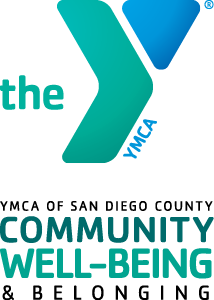YMCA mental health clinician, Dejanee Shanklin, offers valuable insights for parents seeking to foster stronger connections and support their teen's growth and development
1. Find an activity of mutual interest.
Busy schedules and smart phones can monopolize your time, it is important that time is set aside to connect with your teen and bond over something your both can enjoy. Spending time together helps build a strong, trusting relationship and a supportive foundation for a teen’s emotional and social development.
2. Highlight their strengths.
Identifying and highlighting the things your teens are good at helps with positive image development, building confidence, and reducing feelings of insecurity and inadequacy. Acknowledging their strengths can also strengthen your relationship with them as it shows you are paying attention to their achievements and abilities. This helps them see their own potential.
3. Remember that mistakes are a part of healthy development.
Making mistakes are a part of the natural human experience. Mistakes are how we learn and grow. As teens navigate increased autonomy and responsibility it’s important for teens to have the opportunity to learn from their mistakes. Save space and understanding for the times teens don’t always get things right. Parents can provide both SUPPORT and CONSEQUENCES.
4. Empower your teens by giving them healthy (age appropriate) choices.
Responsible teens become responsible adults. Developmentally, teens have an ability to begin managing multiple responsibilities between their academic, family and social commitments. Providing your teens with opportunities that have multiple choices gives teens a chance to practice decision making skills, learn to take responsibility for their choices and gain a sense of independence.
5. Individuality creates confidence.
Your teens may present themselves with unique and or unconventional styles of fashion, beauty, music, etc. Developing personal styles helps teens explore their identity and express their feelings and creativity. Try to make efforts to support their personal styles before you critique them.
ABOUT THE AUTHOR
DeJanee Shanklin MSW is a San Diego native, and High School therapist. DeJanee started her career in social work in Long Beach, CA specializing in children and family wellbeing. DeJanee is a daughter, sister, and friend that is passionate about improving emotional health, juvenile justice and eradicating disparities caused by systemic and racial oppressions. TK photo for placement only.
About YMCA Mental & Behavioral Health Services
At the Y, we pride ourselves on our holistic approach to mental and behavioral health. With over 50 years of experience, we're deeply committed to addressing the mental health needs of our community, particularly among children and youth. Our approach is rooted in evidence-based practices, ensuring that our interventions are effective and relevant. We understand that mental health is diverse and personal, which is why we offer a wide range of specialized programs and therapeutic supports tailored to meet the unique needs of each individual and family. Our comprehensive services include counseling, parent and caregiver support, workplace wellness initiatives, and programs that promote positive youth development. Through these offerings, we aim to build protective factors, reduce stress, and promote well-being for all. Learn more at www.ymcasd.org/mentalhealth.
LOOKING FOR MORE?
Here are additional articles and resources written by our YMCA mental health team.
ACTIVITY: Managing Our Emotions
Five Tips: Understanding Your Teen and Improving Your Relationship
Let's Talk about Compassion Fatigue
The Power of Positive Self-Affirmations
Raising Kids and Teens - a Manual-ish!
STRESS and the Therapeutic Value of Our Relationships



